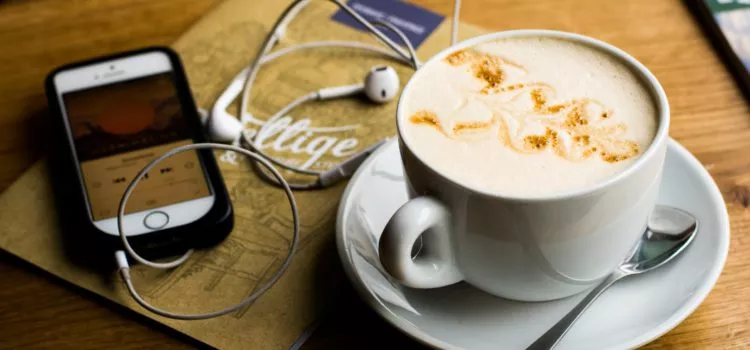

Since 2017, I have been involved with producing podcasts at Waterford Institute of Technology (and elsewhere before that). Some are linked directly to subjects whereas others are extra material. They all span multiple disciplines and provide another way for us to engage with our students and college community. In this blog post, I won’t get into the technicalities of creating podcasts, but instead lay out some benefits that podcasts can bring. These are based on my own casual observations.
By their very nature, podcasts can be digested when it suits the listener. In educational terms, this means podcasts are prime examples of asynchronous content.
Time Away From The Screen
Since COVID began, education has been centred around the computer screen. This is an obvious necessity during a global pandemic. However, the negative effects of excessive screen time are very real. Podcasts provide a way for learners to engage with material without being required to actively tether themselves to a computer monitor.
Allow You To Do Something Else
Listening to a podcast can be a hands-free activity and can be something you do whilst also doing something else. You can listening to podcast while going for a walk or cleaning up the kitchen. In this way, podcasts can become valuable background material.
Facilitates Different Learning Styles
Everyone employs a variety of learning styles. Auditory learning is just as valid as traditional reading and writing. Also, podcasts can become an act of creation too – where students may record their own podcasts as assignments or projects.
“Simple” To Produce
Stick with me. In February 2020, if you asked most academics how confident they were about producing videos for online learning, I think the honest answer would have been “not very confident” – some may even even have run. mile. Necessity is the mother of invention and teachers all over the world have embraced new learning methods. If often like to joke that I’m a YouTuber now – with a very niche audience. However, producing audio material is actually simpler than producing video content. There is no need to worry about camera placement, lighting or what’s in the background. A podcast can be produced with a couple of a laptop microphones and some free software.
In another blog post, I’ll get into some of the technicalities as to how someone might dip their toe into the world of podcasting. I’ll leave you with three examples of podcasts which I produced at WIT that demonstrate educational possibilities. Two of these were recorded during lockdowns. Yeah, the sound quality isn’t perfect, but the voices are perfectly understandable and the information comes across.
1. WinWin – Karen Williams. Host Bruce Wardop speaks with Karen Williams of British Gymnastics about her career beginning as an exercise physiologist through to her current role as Head of Performance Planning with British Gymnastics.
2. Engendering Change – Gender and The Law. Niamh Maguire of WIT speaks with Professor, Senator and Barrister at Law Ivana Bacik about gender and the law and her own experiences of campaigning for equality with respect to Irish law.
3. The Machine – Bluffers Guide to Artificial Intelligence. Tied into a conference which took place in Kilkenny in February 2019, this podcast is everything you want to know about AI, but were afraid to ask.
Happy listening!
